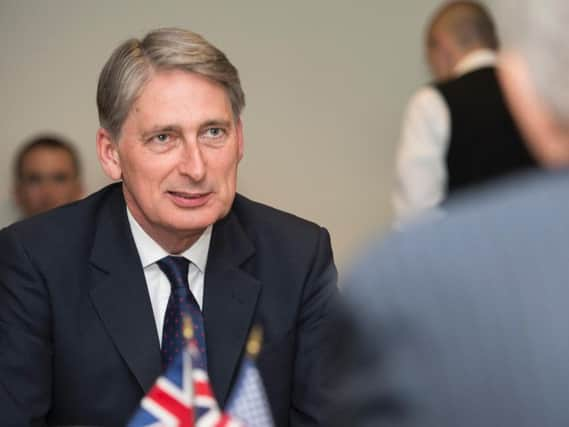Reporting Back column with Andrew Jones MP


Style is one thing. It is the substance though that counts.
After a year where Brexit and Trump dominated the headlines this Budget brought the finances of our country back in to sharp focus.
Britain has a debt of nearly £1.7 trillion – almost £62,000 for every household in the country.
Advertisement
Hide AdAdvertisement
Hide AdEach year, we are spending £50 billion on debt interest – more than we spend on defence and policing combined.
So the only responsible course of action is to continue bearing down on the deficit to ensure that we beginning living within our means again.
But striving to live within our means is not the only imperative. Ensuring a healthy, well cared for nation is a priority.
We all know the pressures our NHS is experiencing.
No serious commentators suggest that there have been budget cuts to the NHS.
Advertisement
Hide AdAdvertisement
Hide AdThe fact remains though that the interface between health care and social care is still not functioning effectively. Too many people are in the health care system waiting to enter the social care system.
That is why the Chancellor has allocated a further £2 billion to social care in England over the next three years. People need to be in the best place to give them the most appropriate care. This extra resource will help that process.
A well-funded NHS depends on a healthy and growing economy. The budget sought to give a boost to businesses – particularly small business. Corporation Tax was 28% in 2010; today it is 20% and it will fall to 17% by 2020 allowing business to keep more of the money they earn to re-invest and help then grow.
I read in the Harrogate Advertiser and Knaresborough Post that some businesses have been left worse off by the business rates revaluation. Although on average business rates in our area have fallen by over 4% there are some losers.
Advertisement
Hide AdAdvertisement
Hide AdThere will be a £435 million support package, meaning businesses coming out of Small Business Relief will have their increases capped at £50 per month in 2017/18; all pubs with a Rateable Value of under £100,000 – 90% of all pubs – will see a £1,000 discount on their 2017 Business Rates bill; and local authorities will receive a further £300 million to target individual hard cases in their areas.
There were many aspects of the budget that were continuations of previous policies such as the introduction and growth of the National Living Wage.
This year, the Chancellor announced that the National Living Wage hourly rate which will rise again to £7.50 in April.
The increases in the personal allowance will rise for the seventh year in a row meaning a basic rate taxpayer will pay a full £1,000 less income tax than in 2010.
Advertisement
Hide AdAdvertisement
Hide AdMarch came in with the budget. I expect it will go out with the implementation of Article 50 and the beginning of our two-year exit from the EU. As we enter those largely uncharted economic waters it is important that our economy is in the best shape possible and best-placed to take advantage of new opportunities which present themselves.
In my view, the emphasis on training, business growth and deficit reduction have achieved that tricky balance.